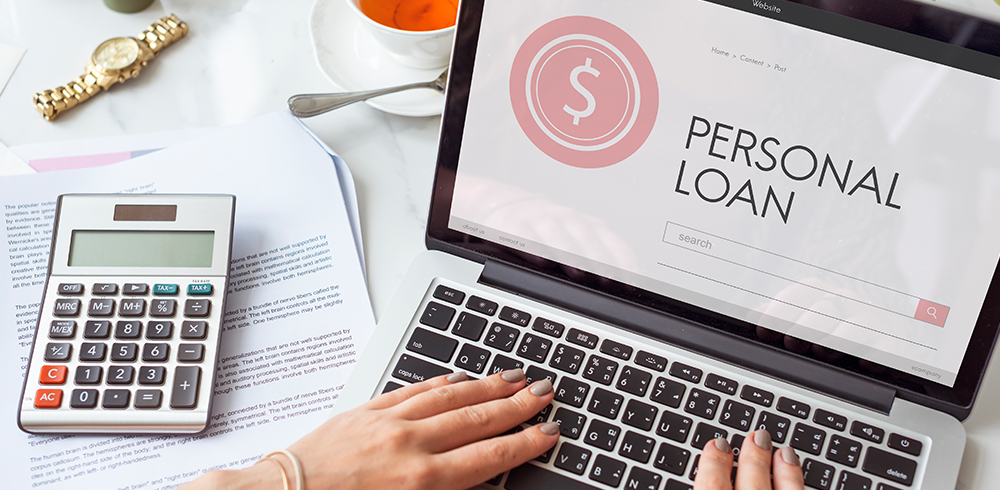Managing your finances can sometimes be challenging, especially when unexpected expenses arise. Many people use personal loans to cover expenses like medical bills, home repairs, debt repayment, or major purchases. If you’ve never applied for a personal loan before, it can be confusing and even intimidating. However, personal loans are much easier to understand than you might think. This beginner’s guide explains what a personal loan is, how it works, and how to borrow money in a way that won’t jeopardize your financial future.
What is a personal loan?
A personal loan is a monthly loan you can take out from a bank, credit union, or even an online lender. Unlike mortgages or car loans, personal loans are usually not tied to a specific purchase. They can be used for almost anything. In other words, you don’t have to put up collateral, like a car or house. You borrow a fixed amount and make monthly payments over a fixed period (usually one to seven years).
How a Personal Loan Works
When you apply for a personal loan, the lender will review your income, credit history, and debt-to-income ratio to determine eligibility and the interest rate offered. If your application is approved, you’ll receive the full amount upfront and can use it as needed. The loan is repaid in fixed monthly installments that cover both principal and interest. This stable repayment schedule makes budgeting easier compared to credit cards, where amounts and interest rates often fluctuate.
Personal loans are often used for
One of the major advantages of personal loans is their flexibility. People use them for a variety of reasons, such as:
- Debt consolidation means combining several high-interest loans into one loan that’s easier to repay.
- Medical expenses not fully covered by insurance.
- Home renovations or repairs.
- Purchasing large items such as tools or machinery.
Wedding or vacation expenses
You can use a personal loan for almost any need, but that doesn’t mean you should. It’s important to be responsible when borrowing money and not use it for unnecessary or impulsive spending.
What are the interest rates and fees
Interest rates for personal loans vary widely depending on the lender and your credit score. People with good credit can expect interest rates of 5-7%, while those with poor credit may have to pay more than 25%. In addition to interest, some lenders may charge origination fees, late fees, or early repayment fees. When comparing loans, check the annual percentage rate (APR), including interest and fees, to better understand the true cost of the loan.
Secured and Unsecured Personal Loans
Most personal loans are unsecured, but some lenders do offer secured loans. Secured loans require collateral, such as cash, a car, or other valuables. These loans may have a lower interest rate because the investor is taking on less risk, but you can lose your collateral if you can’t repay the loan. Unsecured loans don’t require collateral, but the interest rate can be higher, especially if you have poor credit.
What to consider when applying for a personal loan
Lenders consider many factors before granting a loan. Here are the most important:
- Your credit score: A higher score generally means a higher chance of approval and a lower interest rate.
- Income: Lenders want to see proof of a stable income so they know you can repay the loan.
- Debt-to-income ratio: This indicates how much of your income goes to bills.
- Employment history: A stable employment history increases your chances of approval.
You may be able to get a loan even if your credit history is poor, but the interest rate may be higher. Rebuilding your credit history before applying can save you money in the long run.
Personal loans have both advantages and disadvantages.
Personal loans are superior to other types of credit in many ways:
- The reliable, fixed amount makes planning easy.
- They are useful in many ways.
- Debt consolidation can simplify your financial life and even save you money on interest.
- If you qualify, they offer lower interest rates than credit.
Compare personal loans:
- Compare loans from different providers.
- Focus on the total cost of the loan, not just the monthly payment.
- If you don’t read the fine print, there may be fees or charges that aren’t clear.
- You can use loan tools to see how your payments would change if you choose different interest rates and repayment terms.
- Before borrowing money, consider other options, such as credit counseling or creating a budget.
Frequently Asked Questions About Personal Loans
Can a personal loan help me get out of debt?
Yes, it’s a good way to consolidate multiple high-interest debts into one low-interest loan. This can simplify repayment and save you money on interest.
How much can I borrow from friends or family?
Loan amounts vary depending on the source and your personal situation. Most personal loans range from $1,000 to $50,000, but some lenders offer higher amounts.
How does a personal loan affect my credit score?
Yes. Loan applications are subject to a strict underwriting process, which can temporarily lower your credit score. On the other hand, consistently paying your bills on time can improve your credit score in the long run.
Can I pay off my loan early?
Many lenders allow you to pay off your loan early, but some charge fees. Check your loan agreement before making any additional payments.
Should I apply for a personal loan or a credit card?
It depends on the circumstances. If you can repay quickly, a credit card is a better way to borrow money in the short term. A personal loan is better for larger expenses or debt consolidation because the repayment amount is fixed and the interest rate may be lower.
In short
If you know how to use personal loans correctly, they can help you manage your money. They offer options, tell you when payments are due, and sometimes offer lower interest rates than credit cards. However, they also carry risks, especially if you borrow without due consideration. Understanding how personal loans work, assessing your financial situation, and comparing different loan options can help you make smart choices that will help you achieve your financial goals instead of hindering them. Remember: the best way to use a personal loan is to be financially prudent and have a clear repayment plan.




